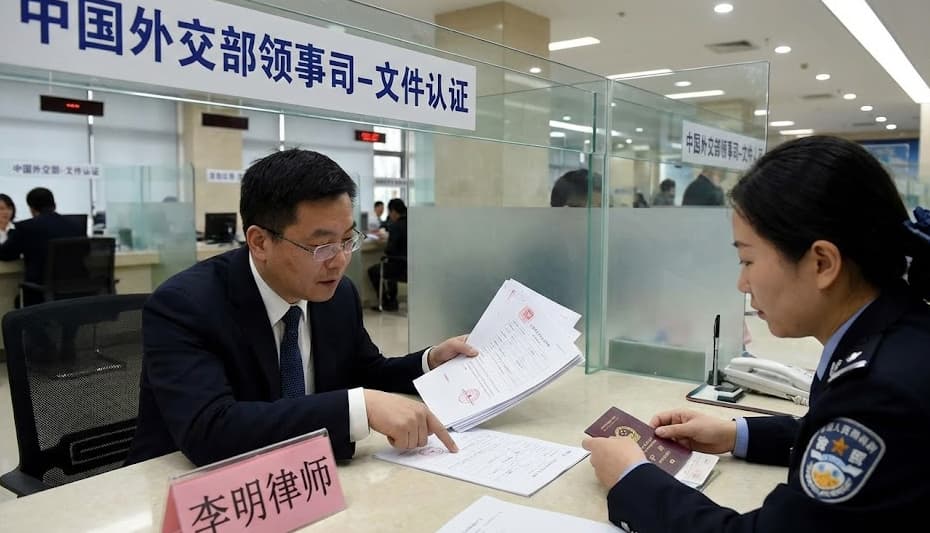If you handle personal data in China or work with Chinese customers, you really need to know about PIPL China.
“PIPL China” stands for China’s Personal Information Protection Law, a sweeping data privacy law passed on August 20, 2021, and in force from November 1, 2021. It governs how personal data is used in mainland China and applies to anyone—inside or outside China—who handles personal information of Chinese individuals.
This law really changes how organizations have to think about personal information in China.
If you know what PIPL China requires, you can avoid fines and keep the data you manage safer. Whether you’re a business owner, a data officer, or just someone curious about privacy, it’s worth understanding PIPL China—it’ll help you make sense of data laws in one of the world’s biggest markets.
PIPL China at a Glance

China’s Personal Information Protection Law (PIPL) sets tough standards for handling personal data. If you collect, use, or transfer data about Chinese citizens, this law impacts you. The law keeps a sharp focus on data privacy, security, and how data can cross borders.
What Is PIPL China & Who It Applies To (Domestic + Foreign)?
PIPL is China’s main law for personal information protection. It started on November 1, 2021, and looks a bit like Europe’s GDPR, but with tighter rules about keeping data inside China.
The law covers all organizations in China and foreign companies that handle the personal data of Chinese residents. So, if you process data about anyone in China, your business needs to follow PIPL—even if you’re based elsewhere.
You’ve got to get clear consent from people before you use their data. PIPL also says you must store data in China unless you get special government approval to transfer it out.
In a nutshell, the law covers:
- Collection
- Use
- Storage
- Transfer of personal information
Learn what’s required on official licenses and how they affect compliance. Read Chinese Business License: Everything You Need To Know.
Core PIPL Rules

PIPL spells out how you need to handle personal information. It’s all about protecting certain kinds of data, getting proper consent, and respecting people’s rights.
Data Types, Consent, and Processing Principles
PIPL splits personal information into regular and sensitive categories. Sensitive personal information (SPI) includes things like health records, biometrics, religious beliefs, or financial info.
You need separate, explicit consent before you collect or use SPI.
Consent has to be informed and freely given. Companies need to explain what data they want, why, and how they’ll use it—no hiding behind legal jargon.
You can refuse or pull back your consent whenever you want.
Data processors must stick to principles like lawfulness, fairness, transparency, and data minimization. Only collect what you need, use it for a specific purpose, and don’t hang onto it forever.
If you use automated decision-making that affects people, you have to be upfront about it and put safeguards in place.
Rights of Individuals Under PIPL
You get strong rights over your data under PIPL. You can:
- Access your PI and fix mistakes.
- Request deletion if your PI isn’t needed anymore.
- Limit or object to how your info is used.
- Withdraw consent at any time—no strings attached.
Your data processor has to handle these requests quickly and keep things transparent.
PIPL also says your PI must be stored securely. If your data goes outside China, extra protections and government approval kick in to keep your privacy safe.
Cross-Border Data Flow

If you want to send personal information outside China, you have to follow tight rules to keep data secure. The process involves security assessments, certifications, and contracts.
The Cyberspace Administration of China (CAC) provides guidance and sets exemptions that affect how you manage these transfers.
Export Rules: Security Assessment, SCCs, Certification
To send data abroad, you usually need a security assessment led by the CAC. This assessment checks for risks to data protection and national security, especially for critical information infrastructure.
It looks closely at how you manage and secure the data.
You can also use Standard Contractual Clauses (SCCs) approved by the CAC. These contracts must clearly protect personal information and spell out what overseas recipients can and can’t do.
Another route is to get personal information protection certification from authorized institutions. This shows your data security practices meet China’s standards.
If you’re dealing with important or sensitive data, these export rules get even tougher. Data tied to national security or massive amounts of personal info? You can expect strict compliance requirements.
New CAC Guidelines, Q&A & Exemptions
In 2024, the CAC released new guidelines to clarify cross-border data transfers under PIPL. These guidelines include detailed FAQs to help companies figure out when and how to comply.
One big change: exemptions from transfer mechanisms. For instance, if you need to transfer data for a contract or international business, you might not have to do a full security assessment.
The goal is to cut down on red tape while still keeping things compliant. Still, you should document your reasons for using exemptions in case regulators come knocking.
The CAC also emphasizes data localization for critical information infrastructure operators. Some data simply has to stay in China unless you get tough approval.
Understand the role of business IDs and legal checks. Read Unified Social Credit Identifier USCI Number in China: Guide.
Enforcement & Penalties

PIPL makes sure companies take personal data protection seriously. If you mess up, the consequences can be severe.
The law expects you to run ongoing checks and assign specific people to manage privacy risks.
Fines
For the worst violations, you could get fined up to 5% of your company’s previous year’s revenue in China. The law can also take away any illegal gains you made.
Sometimes, it’s not totally clear if the fine is based on local or global revenue—so it pays to stay alert.
Besides fines, you might get warnings or enforcement notices. The idea is to push you toward compliance, and fast.
Audits
Authorities can order audits to check how you handle personal information. These audits cover everything from collection to storage and use.
If you fail an audit, the penalties get worse. Regular audits help keep your data protection system up to scratch and keep you out of trouble.
DPOs
PIPL says you might have to appoint a Data Protection Officer (DPO). Your DPO keeps an eye on compliance and deals with data protection issues.
The DPO is your main contact for regulators and helps make sure your daily operations match the law. Having someone who knows their stuff can really lower your risk of getting penalized.
Impact Assessments
PIPL makes you carry out Personal Information Protection Impact Assessments (PIAs) before some data processing activities.
These assessments spot risks and help prevent harm to personal data. You have to document the results and tweak your processes if needed, so you can dodge legal trouble.
Get clarity on key data protection rules. Read China Privacy Law: What You Need to Know.
How Businesses Comply
If you want to comply with PIPL, you’ll need to dig into your data handling processes and contracts. This means auditing your systems, updating how you get consent, and making sure your agreements fit PIPL’s requirements.
You also need to know how PIPL is different from the GDPR, especially if you’re operating internationally.
Compliance Checklist: Audit, Consent Updates, Contracts
Start with a data audit—find out what personal information (PI) of Chinese residents you collect, process, or store. Mapping your data flows helps you see risks and fix compliance gaps.
Next, update your consent processes. PIPL demands clear, specific consent for each processing activity, and people should be able to withdraw consent easily.
Check and update contracts with third parties or service providers who handle PI. Contracts have to include strong clauses about data protection, security, and liability to meet PIPL’s standards.
And don’t forget to do a personal information impact assessment (PIA) if you’re processing sensitive PI or big data volumes. This step helps you spot and cut down risks.
PIPL vs GDPR: Key Differences & What Foreign Firms Must Know
PIPL and GDPR share some ideas—like individual rights and data minimization—but the differences matter.
PIPL doesn’t just cover companies inside China. It also applies to overseas firms targeting or analyzing Chinese residents' data. GDPR is more about entities in the EU or those handling EU data.
PIPL usually requires a "security assessment" before you transfer data out of China. These assessments are stricter and more detailed than what GDPR asks for.
You might have to appoint a local representative in China if your operations cross certain thresholds, which isn’t quite the same as GDPR’s DPO model.
PIPL’s penalties can be rough—up to 50 million RMB or 5% of annual revenue. That alone should make compliance a top priority.
Final Thoughts
PIPL China sets strict rules for anyone handling personal data from China—foreign or domestic. It mandates clear consent, special care for sensitive information, and strict rules around cross-border transfers.
Non-compliance isn’t trivial. Companies face fines up to 50 million RMB (or 5% of annual revenue), audits, business suspensions, and reputational damage.
But by conducting audits, updating policies, using standard contracts, and staying current with CAC guidance, you can stay compliant.
Understanding PIPL empowers you to protect users and avoid penalties. Ready to safeguard your data practices? Contact China Legal Experts today.
Also learn practical steps to verify legitimacy. Read How to Check if a Chinese Company is Legit.
Frequently Asked Questions
Can individuals use PIPL?
Yes, individuals in China can use PIPL to protect their personal data. The law lets you ask organizations to provide, correct, or delete your data.
You can also refuse or stop processing of your personal info in some cases, giving you more control over your data.
What are the individual rights under China's Personal Information Protection Law?
You have the right to know how your personal data is collected and used. You can ask companies to provide, correct, or delete your information.
You also have the right to restrict how your data is used or to withdraw consent at any time.
What are the main obligations for companies under PIPL?
Companies must get your clear consent before collecting or using your data. They need to appoint someone responsible for data protection, usually called a Data Protection Officer.
Companies must also put security measures in place to keep your information safe and report any data breaches.
How does China's PIPL compare to the European Union's GDPR?
Both laws focus on protecting personal data and require consent for data use. PIPL adds rules for cross-border data transfers and lines up with China’s national security goals.
Unlike GDPR, PIPL requires specific appointees for personal information protection when large-scale data processing is involved.
What is the penalty for PIPL in China?
Penalties can get pretty severe. Companies might have to pay fines up to 50 million yuan or 5% of their annual revenue.
Authorities can also hit individuals with personal fines. In really serious cases, criminal penalties come into play.
If you don't comply, you could even face business restrictions or get your operations suspended.
Who does PIPL apply to?
PIPL applies if companies or organizations process personal information of people in China.
It covers domestic and foreign businesses that operate in China.
Even if a business is based elsewhere, if they handle data of Chinese individuals, they fall under PIPL too. So, whether you interact with local or international companies, PIPL steps in to protect your data.
Subscribe to receive updates
Subscribe to receive the latest blog posts to your inbox every week.






